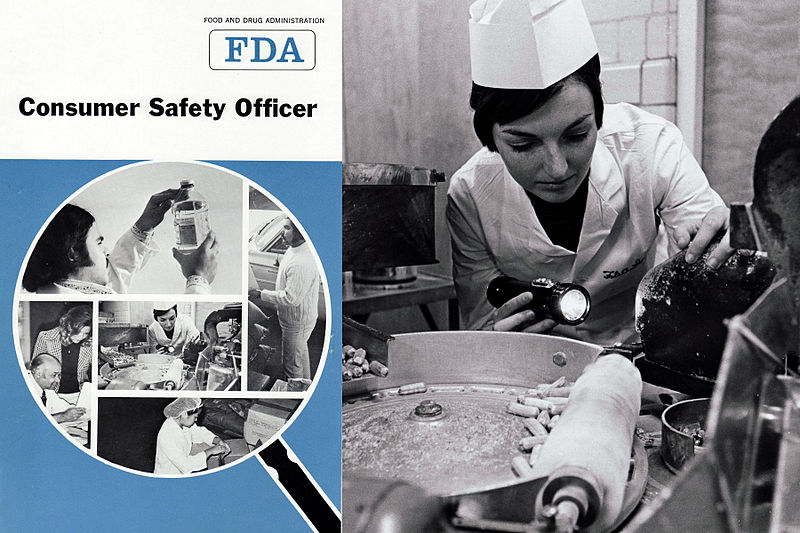The US Food and Drug Administration (FDA) identifies about 200 instances of research misconduct in clinical trials every year during site inspections. However, information about these violations is kept from public view. In a new article, medical researchers urge the FDA to release inspection reports publicly.
Writing in JAMA, Florence T. Bourgeois and Aaron S. Kesselheim from the Harvard Medical system and Rafael Dal-Ré from the Universidad Autónoma de Madrid, Spain, provide several examples where the privacy of these inspection reports threatened public health.
“These inspections occasionally reveal objectionable practices, such as failure to obtain informed consent, falsification of data, or violations in adverse event reporting,” the researchers explain.
However, these reports are often withheld from public view because they contain “confidential commercial information.” Companies found guilty of research misconduct can have private conversations with the FDA, which sometimes enables them to compromise research integrity in the name of providing a “new treatment.”

The researchers provide three examples:
The first is the anticoagulant apixaban, which was studied in a large, multicenter trial called ARISTOTLE (published in 2011). After Freedom of Information Act requests, the public learned that the FDA had identified research misconduct—including outright fraud—at 24 of the 36 sites testing the drug in China.
However, in discussions with Bristol-Meyers Squibb and Pfizer (the makers of apixaban), the FDA appeared afraid that “if data from one of the sites were excluded, the statistically significant benefit of apixaban on all-cause mortality would be lost.”
They decided to allow Bristol-Meyers Squibb and Pfizer to publish their results, including data from all 24 fraudulent sites, without mentioning their concerns about falsified data.
That publication, which does not mention the fraud and falsified data, has been cited more than 6900 times and forms the backbone of clinical guidelines by the American Heart Association and the American College of Cardiology.
The second example is the anticoagulant rivaroxaban (developed by Bayer and marketed by Janssen, a division of Johnson & Johnson), which was studied in 16 sites in a trial called RECORD4. The FDA investigated and found that data from half of the sites were unreliable—including concerns about data falsification.
The FDA concluded that the researchers did not report 265 adverse events due to the drug. They considered these problems so severe that they did not include the RECORD4 study in their assessment of whether to approve rivaroxaban.
Nonetheless, the results of RECORD4 were published in 2009, in a publication that has now been cited more than 1100 times and forms the backbone of clinical guidelines by the American Association of Orthopedic Surgeons.
The third example is Study 201, a trial of eteplirsen (developed by Sarepta to treat Duchenne muscular dystrophy). The FDA’s investigative conclusions have not been released, but “the FDA commissioner publicly called for retraction or correction of published trial reports, which never occurred,” and two FDA review panel members resigned to protest the inclusion of unreliable data.
Nonetheless, eteplirsen received “accelerated approval” from the FDA and was approved in 2016.
A study from 2015 examined 78 publications of research studies for which the FDA had investigated and found research misconduct. According to those researchers, only 3 of the papers even mentioned those concerns. None of the publications were ever corrected or retracted.
Mad in America has consistently reported on cases of research misconduct, such as a ghostwritten study of paroxetine with misleading results, the details of which have only recently emerged thanks to court cases against pharmaceutical company GlaxoSmithKline.
To combat these problems, Bourgeois and co-authors urge the FDA to release the results of their investigations, both on the FDA website and on clinicaltrials.gov, a site that already allows the public to review some information about how clinical trials are being conducted.
The researchers write:
“Public availability of these reports is required to meet current standards for clinical trial transparency and uphold the integrity of the scientific evidence base.”
****
Dal-Ré, R., Kesselheim, A. S., & Bourgeois, F. T. (2020). Increasing access to FDA inspection reports on irregularities and misconduct in clinical trials. JAMA. Published online April 23, 2020. DOI: 10.1001/jama.2020.1631 (Link)















It has reached a point, where we should all be witness to everything it seems. And yet, it would not change, even if we were.
there is simply hierarchy in society….
Report comment